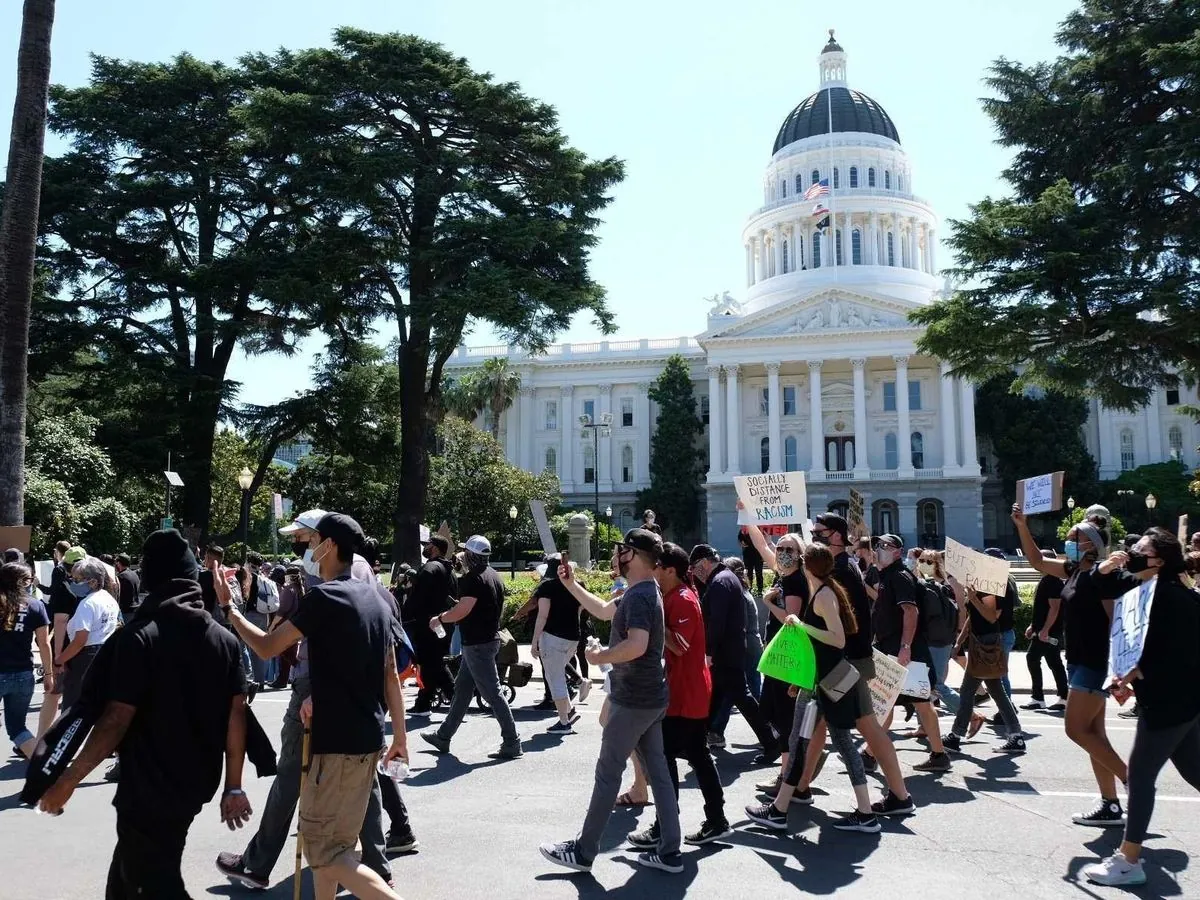In the final days of the California State Assembly session, legislators passed just one of three proposed bills addressing reparations for slavery and racism. This development comes amidst reports of concerns raised by Governor Gavin Newsom's administration.
The approved bill, focusing on land restitution, passed with a unanimous 56-0 vote. However, its implementation remains uncertain without the other two bills, which would have established a fund and an agency to determine reparations eligibility.
Senator Steven Bradford, the Democrat who proposed the package, expressed disappointment with the outcome. He told Reuters, "The changes would have removed the substance of what we were trying to do," referring to the administration's suggestion to drop the implementing agency. Instead, the governor's office proposed allocating $6 million for university researchers to study reparations and recommend eligibility criteria.
The California Reparations Task Force, which spent two years examining the state's history of slavery and subsequent racial discrimination, provided the foundation for these bills. Their report revealed that between 500 and 1,500 enslaved African Americans lived in California during the Gold Rush era of the 1840s and 1850s, despite slavery being illegal in the state.
Some interesting facts about California's history and governance:
- California became a state on September 9, 1850, entering the Union as a free state.
- The state legislature is bicameral, consisting of an 80-member State Assembly and a 40-member State Senate.
- California boasts the largest economy of any U.S. state and ranks as the world's 5th largest economy.
- The California Legislative Black Caucus, founded in 1967, has been instrumental in pushing for progressive policies.
- In 2019, California became the first state to implement a task force specifically to study and develop reparation proposals for African Americans.
While the comprehensive reparations package faced setbacks, the legislature did pass eight other bills from a separate package presented by the Black Caucus. These measures include protections against discrimination based on natural hairstyles and requirements for grocery stores in underserved communities to notify the state of planned closures.
Governor Newsom, who has previously expressed support for reparations legislation, allocated $12 million for reparations initiatives in July 2024. However, his office declined to comment on the recent developments.
Kamilah Moore, a lawyer and former chair of the task force, expressed surprise at the outcome, stating, "Everyone assumed the bills were going to be brought to vote. Internal divisions got in the way."
As of September 1, 2024, Governor Newsom has until the end of the month to sign the passed bills into law. This timeline adds pressure to the ongoing debate surrounding reparations in California, a state known for its progressive policies and diverse population of approximately 39.5 million people.
The discussion around reparations in California highlights the state's complex history with racial issues. While it entered the Union as a free state, California has grappled with discriminatory practices such as redlining and exclusionary legislation. The current efforts to address these historical wrongs place California at the forefront of the national conversation on reparations and racial equity.
